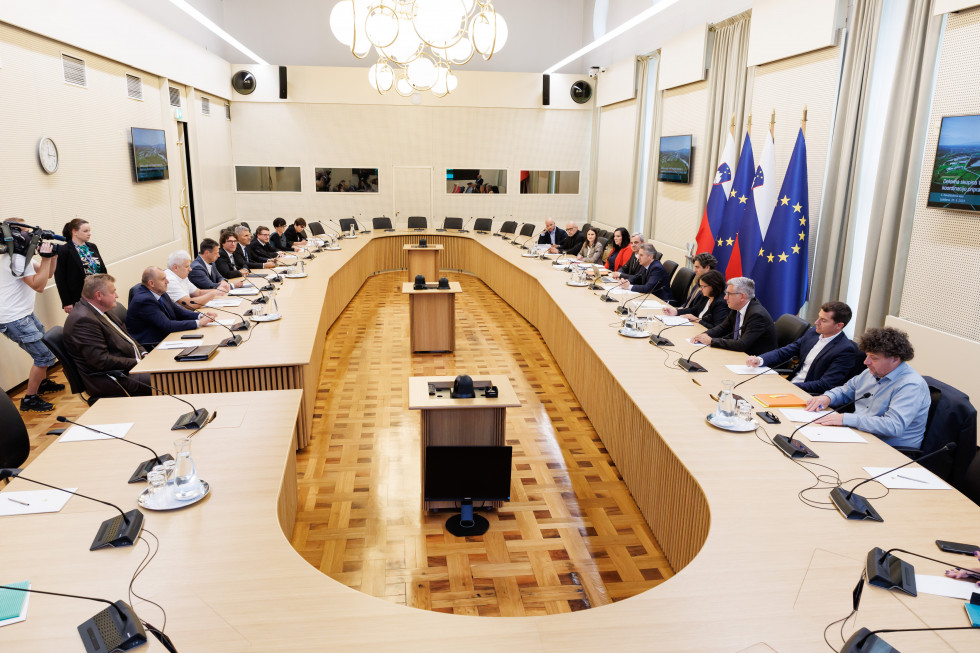Government coordination of the Nuclear Power Plant 2 project is also a response to the climate crisis

The Working Group for the Coordination of Preparatory Activities for the New Nuclear Power Plant (NPP2) project in Krško held its inaugural meeting today | Author Nebojša Tejić/STA
As it is an intergenerational and multi-stakeholder project, the implementation requires a coordinated cooperation of various governmental, institutional and external expert organisations. Because of the importance of the project, its complexity and, above all, its multi-stakeholder nature, the Government recognised the need to establish a coordinating body for the coordinated and accelerated implementation of preparatory activities.
The Working Group for the Coordination of Preparatory Activities for the New Nuclear Power Plant (NPP2) project in Krško held its inaugural meeting today.
As Prime Minister Robert Golob said on the sidelines of today’s meeting of the Working Group, the climate warns us practically every day that the climate crisis is here, and therefore we must react immediately and decisively. According to the Prime Minister, the energy sector is one of the main sectors where decarbonisation needs to be implemented as soon as possible. Slovenia has already taken the first steps in this area. The first step was the adoption of the act to speed up the siting of renewable energy installations. "The next step is that Slovenia, as a nuclear state, which it undoubtedly is, also takes the step of examining whether nuclear technology can be a part of the solution with new facilities in Slovenia," the Prime Minister added. The first meeting of the Working Group is a step towards preparatory activities for the study of the Nuclear Power Plant 2 facility. The objectives of the Working Group are to establish an appropriate regulatory framework and to accelerate the project, as under the current legislation the facility could start its operations in 2049, which shows the extreme complexity of the project and the futility of continuing it under the existing legislation.
The project is in the preparatory phase and pre-decision activities are underway, which will be of paramount importance in the event of a referendum decision. "We want the public to be well informed regarding the referendum on this point, which means that we want to have everything ready that is necessary for the people to be able to make a quality and informed decision on the Nuclear Power Plant 2," the Prime Minister stressed, adding that the second task of the Working Group is to see how, on the basis of special legislation that will be adapted for such a large project, we can speed up the construction of the facility, with the aim of making it not only faster, but also, and above all, more cost-effective and more economical to build.
State Secretary for the National Nuclear Programme Danijel Levičar, Head of the Working Group, stressed that the Government of the Republic of Slovenia has recognised the strategic importance of the construction of the Krško Nuclear Power Plant 2: "We recognise the great extent of this project, in terms of the various stakeholders and resources that will be needed for its implementation." According to the State Secretary, such coordination is necessary to get the project moving, to prepare all the necessary regulatory bases to make the project feasible and to accelerate it, which are the key objectives that the Working Group will pursue.

